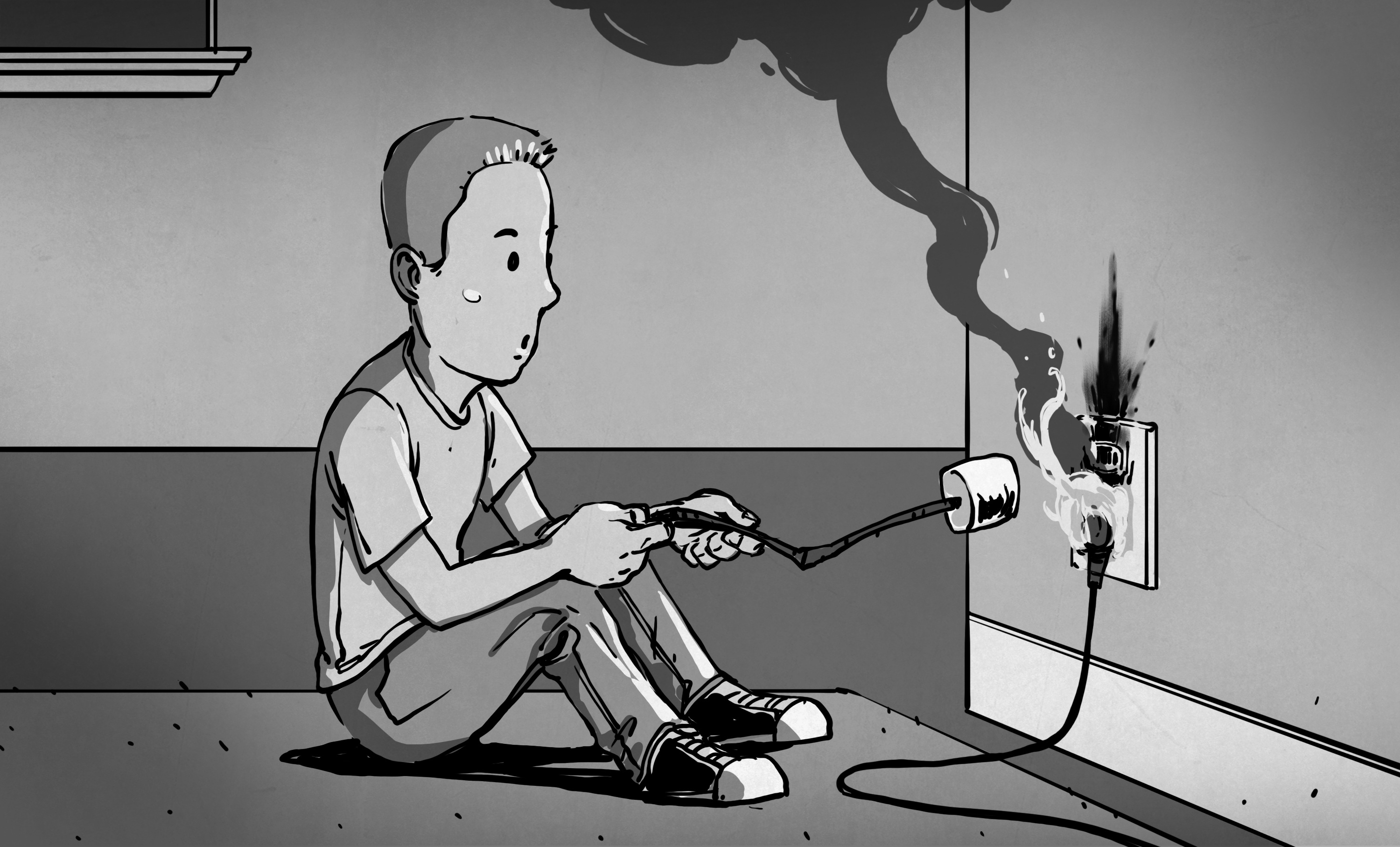If by "no-break" you mean a UPS system (Uninterruptible power supply), then that's really up to you but you need to make sure you get one that is compatible with the power supply you get. Some power supplies will not work correctly without a Pure sine wave UPS, and will give you nothing but problems and potentially even fail, with a simulated sine wave unit. Pure sine wave UPS systems are more expensive than those that use a simulated sine wave so going with a cheap UPS may not be an option. It's never a GOOD option anyhow, but might not even BE an option in this case.
On the power supply, are you intending to get the RM850, RM850x or RM850i? Because there are significant differences between all of them.
If you are NOT going to use a UPS, then yes, it should be connected directly to the wall socket unless you have a high quality industrial power strip or power line conditioner.
Most people buy and use power strips because they THINK that the fact it says surge protector means something. Usually, it doesn't. This is one of my favorite quotes on the subject from an electrical engineer and residential/commercial electrical journeyman I know.
Units you want to consider will be those sold by APC, Tripp-Lite, Leviton, Eaton, Leviton, General Electric, Polyphaser, Ditek, Siemens, ABB, Square D, Intermatic, Cutler-Hammer (Eaton), and Syscom, these are the brands you can trust to have high quality internal electronics if you MUST use a power strip but even so you STILL will want to ask around about specific models OR look to professional reviews as even these big boys occasionally have a product with some glaring flaw that makes it's way into the final product and might best be avoided compared to other available models.
Do not however use a power strip thinking that it offers significant protection, because even the best of them does not, not really. Whole house protection is the only real protection from surges.
Monster and Belkin, and a few others that are commonly used, almost unilaterally use the same protections in their 45 dollar surge protector strips as what you would find in an 8 dollar Amazon or Walmart branded model. And if you ever take one of these, or any cheap box store, dollar store (Even worse than these others usually BUT occasionally about the same) or Harbor Freight power strip apart you are likely to find frayed wires, poorly soldered connections with blobs of solder nearly touching crucial and potential short circuit points, super low quality MOVs, and a ton of other indicators that no real integrity was involved in the design or manufacturer of these units.
Another factor to keep in mind is that even with some of these high quality units, any protection that MIGHT be afforded, is usually the end of that product after one shot. This, directly from the Tripp-Lite manual for the #1 selling surge protection power strip in the world.
I believe many models from APC and a couple of the others I listed have now incorporated designs that permanently disengage any ability of the device to deliver power once a surge or short of significant enough caliber to incur the protection has occured. That basically means once there has been a surge or short, throw the device away. Even for high end models. Only whole house protection and properly earthed circuits offer any true protection from a serious surge or direct strike from lightning somewhere close enough to affect your segment of the grid.
And whatever you do, don't EVER buy any kind of extension cord, power strip or other electronic device with slip rings.
A few weeks ago I needed a power strip in my home office. The outlet in question is located behind a filing cabinet so it would need a low profile plug. I jumped on Amazon to buy a surge suppressor…

hackaday.com



